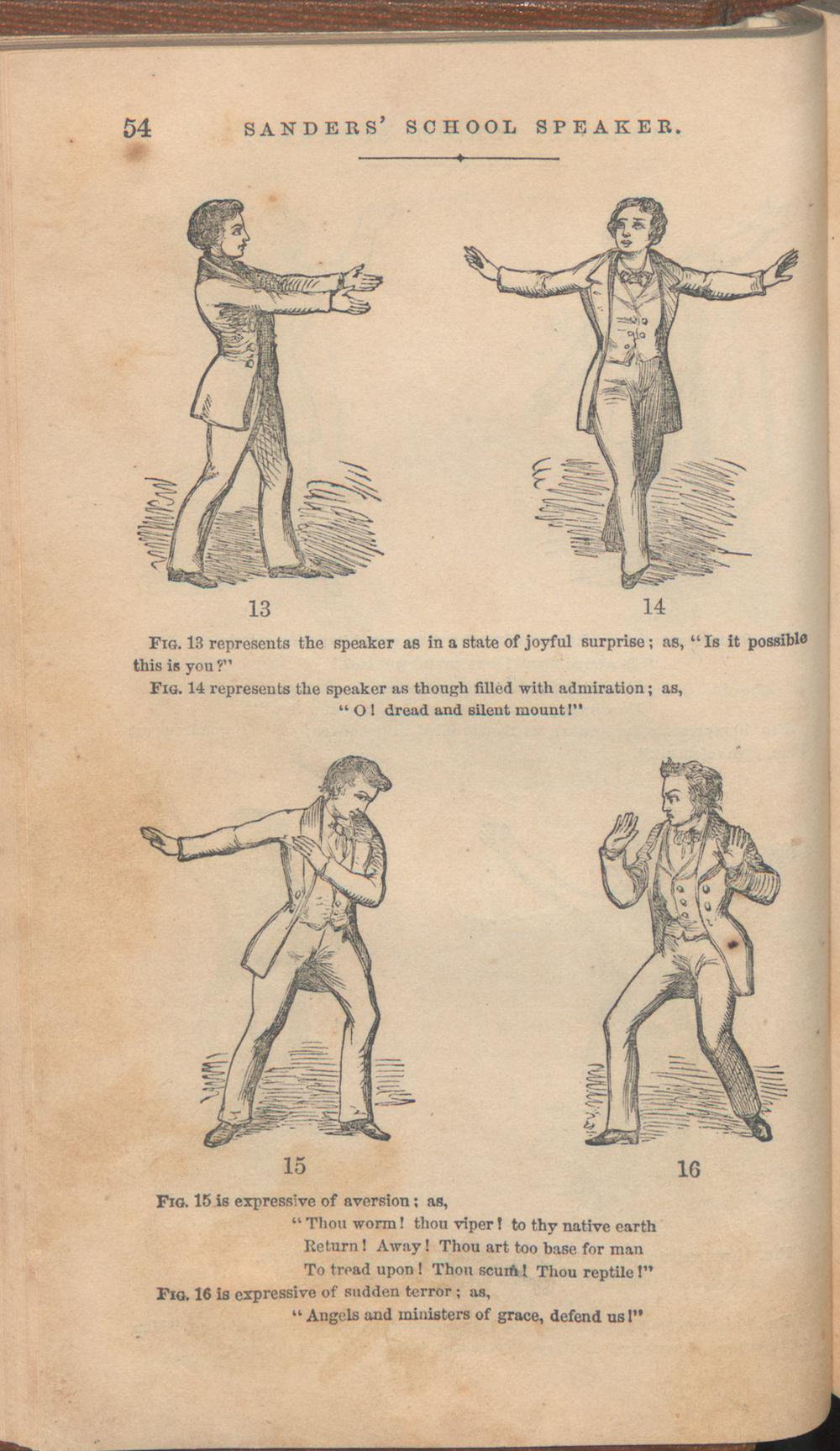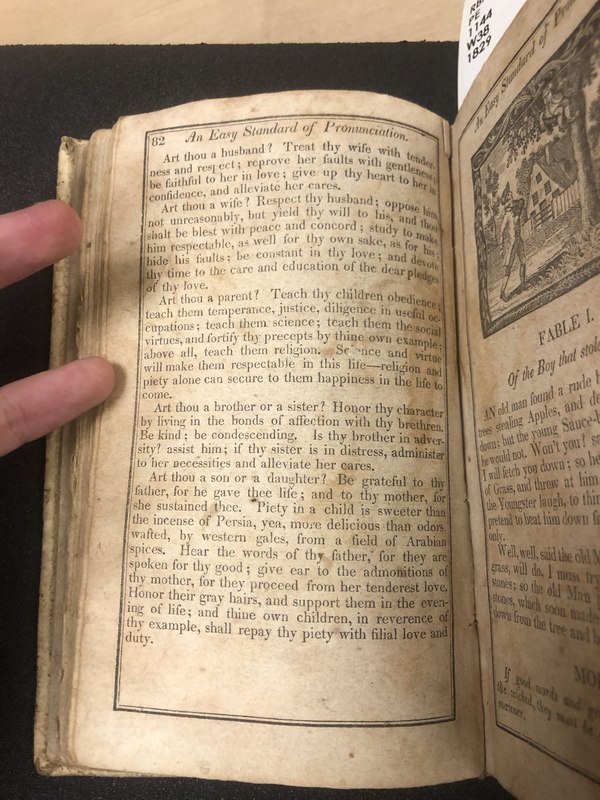Cross-Event Linkage
To find a cross-event linkage with another text in our collection, one must look no further than the book to which this one is a response: The American Spelling Book Containing the Rudiments of the English Language, published in 1829. While any of Webster’s works can be seen as linked to the speech event described above, it is this one that is of particular interest, since the subtitle of The Elementary Spelling Book is Being an Improvement on the American Spelling Book. Why he sees the latter as an improvement is not clear, and in fact the content of the two is quite different, aside from both being, technically, spelling books. In the first version, Webster intersperses his spelling guidelines with completely unrelated topics, such as “precepts concerning the social relations,” in which he explains how to behave in society depending on one’s identity and relation to the identities of others. Although there are no explicit social instructions in the second book, the ideological underpining is apparent: there is a linkage between proper speech and proper social comportment, which we can assume then carries over to proper morality, as seen in the language used by Webster to describe good language in The Elementary Spelling Book. The religious backing that underlies much of The Elementary Spelling Book is no stranger to him in The American Spelling Book, as he declares in one example of social instructions that the one vice that lies “above all” is to be “a scoffer at religion” (81). Furthermore, when explaining how children should behave, he recommends: “Hear the words of thy father, for they are spoken for thy good” (82), a sentence that sounds all too familiar if one has just read the concluding sermon of The Elementary Spelling Book, which thus begs the question: does Noah Webster see himself as a father figure to his readers – or even a father of proper American English speech? Reading into the underlying opinions behind Webster’s instructional texts provides insight into a vast window of knowledge of the time, and of the author himself. It is for this reason that one can make a clear cross-event linkage between these two texts.

